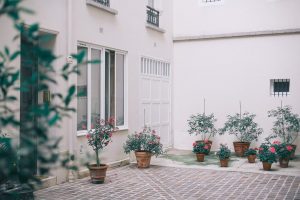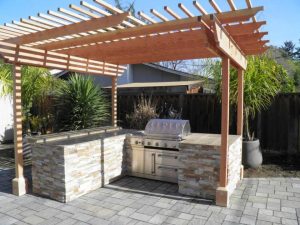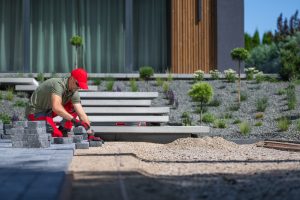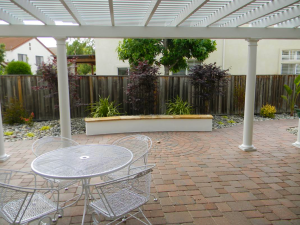Generally, a paver driveway in the Bay Area costs between $80 and $130 per square meter, with most projects falling somewhere in the middle. Your total cost varies based on the size of your driveway, the style of pavers you choose, and the amount of site prep required. Labor and material prices in the Bay Area tend to be on the higher side compared to the national average. Opting for natural stone or custom patterns can push your price up, while more common concrete pavers tend to cost less. Site access and slope can affect your total. For those considering options, understanding these price points allows you to budget and compare estimates. The following sections detail what impacts your cost and what to anticipate.
Key Takeaways
- So on average, a paver driveway in the Bay Area will run you somewhere between $5,700 and $17,000.
- Adding up all your project costs per square meter—including site preparation, labor, and permit costs—will guide you toward a realistic budget.
- By comparing concrete, brick, natural stone, and permeable pavers, you can weigh the cost vs. longevity vs. aesthetic.
- These local considerations, like seismic base preparation, runoff regulations, and site access, can help you avoid hidden costs and delays.
- Annual upkeep and repair when needed prolongs the life and appeal of your paver driveway and safeguards your investment.
- A beautiful paver driveway can add both style and value to your property.
Bay Area Paver Driveway Cost
The typical Bay Area paver driveway cost is roughly $11,500 for a two-car driveway, but you can expect to pay between $5,700 and $17,000. This range is derived from the price per square meter, which typically varies from $10 – $30, and is based on your choice of pavers, the complexity of your design, and any additional work the site requires. Materials, labor, and the size of your drive all have a big role in molding this figure.
1. Price Per Square Foot
Knowing the price per square foot provides you with a concrete means to budget. Paver driveway costs tend to be about $10 to $30 per square foot installed. On the lower end, you’ll find concrete or basic brick pavers, with the higher end encompassing porcelain or premium-grade stone pavers. Larger or more intricate designs tend to drive the cost higher, as well. Labor, site prep, and your area’s market rates all alter the bottom number.
For instance, a basic 50 square meter drive at $10 a square foot is $500, while a more premium paver at $30 a square foot would be $1,500 for the same area. You can choose between concrete, brick, natural stone, and porcelain, each having its variation of price and advantages.
2. One-Car Driveway Estimate
An average one-car driveway is roughly 300 square feet. At $10 to $30 a square foot, your costs could be $3,000 to $9,000. If you’re looking to DIY, you could save as much as half, with prices falling from $5 to $25 per square foot.
Remember, additional prep work or special design choices can increase labor costs. If you’re after custom borders or a complicated pattern, consider a higher cost.
3. Two-Car Driveway Estimate
Most 2-car driveways end up around 640 square feet, so you could be looking at close to the Bay Area average of $11,500. Materials such as porcelain can drive this higher, while concrete or brick keep costs closer to the bottom.
Always buy 10-15% extra than your area for waste and cuts.
4. Large Driveway Estimate
Larger drives, like 900+ sq. FT can range from $9,000 to $27,000.
Labor charges often go up with size.
Selecting materials with a favorable price-to-durability ratio assists.
A large project could take a week or more.
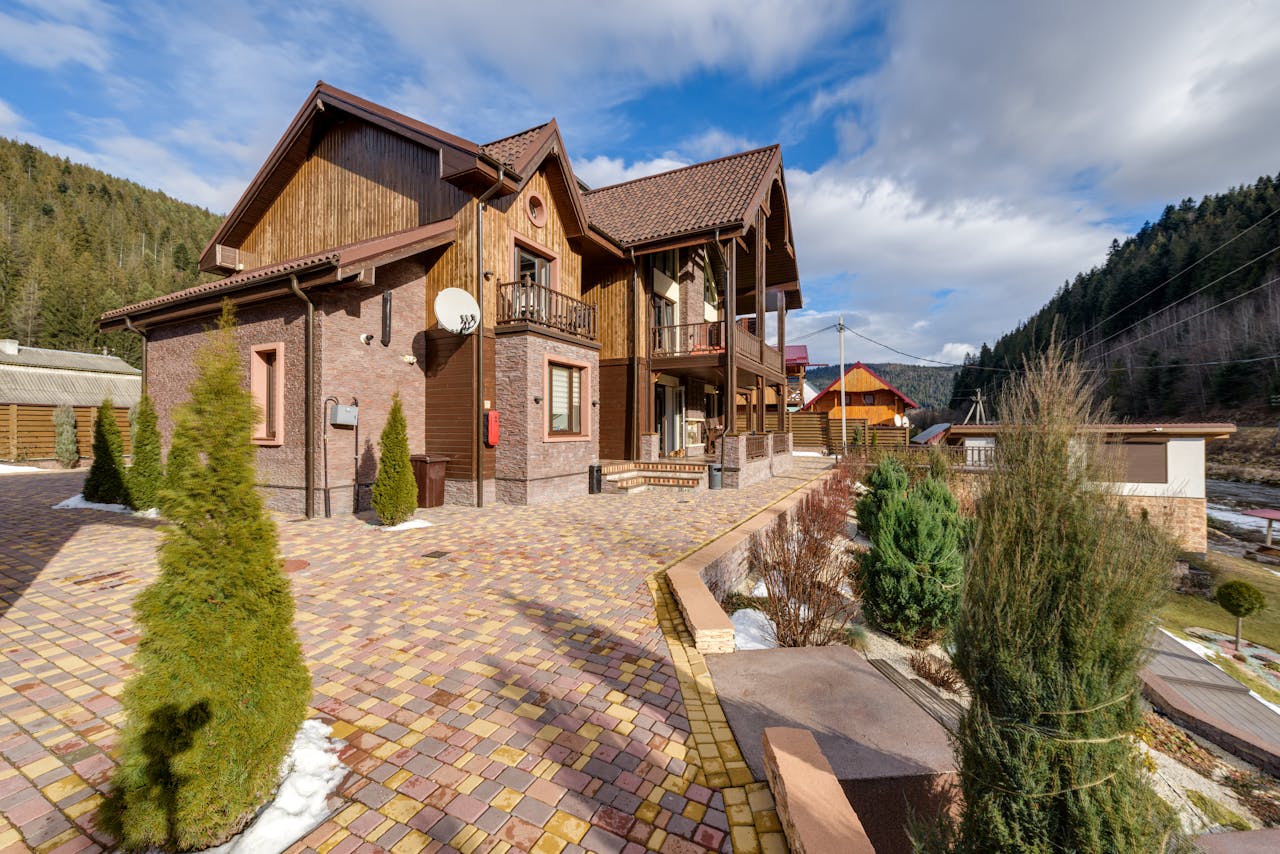
What Influences The Price?
The price of a paver driveway in the Bay Area is determined by a few fundamental factors. What you decide on for materials, labor, site work, design, and permits all factor into your final tab. Knowing these details allows you to plan better and avoid surprises.
Materials
Material is the initial expense you encounter. Concrete pavers are typically the most economical, with brick and cobblestone pushing prices higher. Porcelain pavers rank high on this list because they are remarkably long-lasting and resistant to water, boasting an absorption rate of just 0.1 to 0.5%. Top-quality pavers have a 25 to 75-year life with less maintenance and thus command a higher initial price.
Paver Material | Cost per m² (installed) |
Concrete | $110 – $215 |
Brick | $150 – $320 |
Cobblestone | $200 – $375 |
Porcelain | $250 – $430 |
Labor
Labor runs from $97 to $108 per m² for regular work. If your driveway has curves, steps, or tight corners, labor can jump to $162 per m2 and above. Contractors may provide a flat fee that includes materials and labor, which simplifies budgeting. Site prep can drive labor costs up, particularly if there’s extra work to be done on the ground or the old driveway needs to be removed.
Site Prep
Site preparation is more than just making room. Breaking up and removing an old concrete driveway, backfilling, or digging through tree roots and boulders can add up quickly. Costs for these steps are easy to overlook, but they matter—count on paying $22 to $38 per m2 if you’re removing old surfaces. Proper site preparation adds to the longevity and appearance of your paver driveway.
Design
Easy designs equal cheap prices. Any sort of color, custom shapes, or decorative edging adds to material and labor costs. Decorative features can add $54-$108 per m2. Jot down a list of features you desire, such as contrasting borders, geometric inlays, etc., and talk them over with your contractor to keep your costs in line.
Permits
You may require a permit, according to local regulations. Permit fees are anywhere from $110 – $540. They can derail your schedule. Always check with your contractor or local office to see what’s required for your area.
Paver Material Options
You have a lot of options on what to pave your driveway with! Each presents a distinct combination of aesthetics, cost, maintenance, and durability. Knowing these will aid you in selecting what suits your needs and budget. Here’s a rundown of the primary kinds of paver materials, along with a quick reference chart below.
Concrete Pavers
Concrete pavers are the most common, typically around $10-20 per square meter installed. They’re a nice happy medium between being kinder to your budget and being durable. These pavers are available in a variety of colors, shapes, and finishes. You can opt for stone- or brick-looking styles, or keep things clean and contemporary.
With consistent cleaning and infrequent sealing, concrete pavers can last between 25 and 75 years. They don’t require much maintenance; you may need to switch out a cracked or stained unit now and then. This variety is simple to fix, as you can replace individual pavers without redoing the entire area.
Brick Pavers
Brick pavers are more expensive, usually between $20 and $30 per square meter installed. They provide your driveway with that timeless, warm appearance that a lot of homeowners love. The red and brown colors complement both old and contemporary homes. Bricks are durable and withstand most weather, but they can erode quickly if you reside in an area with many freeze-thaw cycles.
Maintenance for brick pavers involves sweeping sand between the joints and swapping out broken bricks. They may require cleaning to prevent moss, but otherwise, their attractiveness and durability make them a favorite for time selection.
Natural Stone
Natural stone pavers, like granite or cobblestone, are a premium option that can cost $20 to $50 or more per square meter. Because the color and texture of every stone piece is never quite the same, your driveway will pop. This distinctive appearance increases the value and curb appeal of your home.
Installation is trickier, typically necessitating craftsmen. That can increase your ultimate price. Still, stone pavers are incredibly durable and impervious to most kinds of damage.
Permeable Pavers
Pavers that can absorb or allow water to pass through. They cost from $1,000 to $10,000, depending on your material and design. Some varieties are constructed with concrete, and others with grass or reused rubber. These pavers back sustainable landscaping, which can reduce your need for separate drainage.
You’re going to have to keep them clear of weeds and debris every year, which takes a little maintenance. In the long run, they could save you money on stormwater management.
Material | Cost (per m²) | Lifespan | Special Features |
Concrete | $10–$20 | 25–75 yrs | Many colors, easy repair |
Brick | $20–$30 | 30–50 yrs | Classic look, weather-proof |
Natural Stone | $20–$50 | 50+ yrs | Unique, high curb appeal |
Permeable | $10–$30 | 20–40 yrs | Eco-friendly, drainage |
Porcelain | $20–$40 | 30+ yrs | Low water absorption |
Rubber | $15–$25 | 10–20 yrs | Made from recycled tires |
Grass | $10–$20 | 10–20 yrs | Green look, eco benefit |
Pavers VS. Other Driveways
When you compare pavers to concrete or asphalt, it usually boils down to expense, maintenance, and the value each type of driveway adds to your home. Each comes with its strengths and weaknesses.
Pavers VS. Poured Concrete
Concrete driveways tend to feel like the economical choice, running anywhere from $4 to $8 a square foot. Pavers tend to be $10 to $30 per square foot. The upfront cost is higher for the pavers, but you enjoy a lot more design options. You can choose colors, shapes, patterns, and finishes. This allows you to easily complement your home’s style or inject a little personality that brings attention to your street.
Poured concrete is less malleable you should not wish to make changes later or correct an issue. When a concrete slab cracks, it’s hard to fix without redoing the whole thing. Pavers make fixes easy—swap out a single paver and you’re set. Pavers take the cake for strength, at 8,000 PSI. Most concrete driveways are just 3,500 to 4,000 PSI. That greater strength pays off over the years, particularly if you reside in an area with freeze-thaw cycles or shifting earth.
Pavers VS. Asphalt
Asphalt driveways are cheaper initially, ranging in price from $4,480 to $8,320 for a 60-square-metre driveway. Consider maintenance. While asphalt requires sealing every few years, cracks can emerge quickly in rough weather. Pavers, provided they’re laid well, require less labor. You can powerwash and seal them to preserve colors and inhibit weeds. If one paver gets damaged, you can replace it without hassle or major expenses.
From a looks standpoint, pavers have so much more to offer. Asphalt has one simple color—black—and a sleek finish. Pavers allow you to incorporate patterns, curves, and colors for increased curb appeal. This can help increase your home’s value, sometimes by 5-10%. A driveway that looks good and lasts long makes a statement.
Pros And Cons List
- Pavers: High upfront cost, strong (8,000 PSI), easy repair, many styles, can last 25-75 years, raise home value, low maintenance.
- Concrete: Lower cost, less flexible, weaker (3,500-4,000 PSI), lasts 20-30 years, repairs are costly, limited designs.
- Asphalt: Low initial price, frequent upkeep, shorter lifespan, limited curb appeal, and repairs are not as easy as pavers.
The Hidden Bay Area Costs
Paver driveway prices in the Bay Area extend well beyond just materials and labor. Most of these hidden costs are caused by local factors—soil, regulations, weather, and site access. All of them can push your final cost up, so it’s good to be aware of them before you begin.
Seismic Base Prep
Earthquake risk is significant in the Bay Area. So that you can keep your driveway safe, you may require seismic base prep. This usually implies going deeper, employing stronger gravel, or incorporating geogrid layers. These are easy to double the base cost. If your property has clay-heavy soil, like we do, it’s even more. Clay soils can require additional digging and improved drainage, both expensive measures. Forego this prep, and you can end up cutting your driveway’s life short and increasing repair bills down the line. As always, consult your contractor about local code and how they intend to address seismic needs.
Runoff Regulations
A lot of Bay Area cities have pretty stringent regulations on water runoff. You might have to supplement with drains, permeable pavers, or larger soakaway pits to make them. These extras don’t come cheap. For instance, the installation of permeable pavers or a drain system can increase project costs by 10–20%. Runoff right also prevents water pooling and driveway and yard damage. Not to mention, you’ll be good to the environment by reducing runoff by as much as 80%! Contractors should be familiar with these regulations and assist in creating a plan that suits your needs and complies with the law.
Site Access
Everything costs; getting materials to your site isn’t a walk in the park. Tight driveways, steep hills, or narrow roads can bog down work and compel crews to bring smaller equipment – or even carry materials by hand. This can tack on labor hours or days to the work. If your address is inaccessible, you could be charged more for the baker’s dozen delivery trucks or additional crew. It’s critical to walk through the site with your contractor beforehand so the plan matches your location.
Microclimate Impact
The weather in the Bay Area varies significantly from location to location. In foggy or damp areas, moisture can infiltrate and erode certain paver varieties. In hotter, drier microclimates, heat can burn through cheaper materials more quickly. Choosing the appropriate paver for your region’s climate extends driveway longevity. Your contractor should be aware of what brands and types hold up best for you.

Long-Term Value And Upkeep
A paver driveway is not just flooring for your vehicle. It’s a long-term asset that can increase the appearance and value of your home if you maintain it properly. With proper maintenance, your driveway endures better over time, saves you money, and even assists with future resale.
Maintenance
Get in the habit of sweeping, hosing & weeding your paver driveway. Little tasks such as raking leaves, tree debris, or snow will assist in keeping stains and cracks at bay. You’ll want to seal your pavers every 2-3 years to maintain their color and longevity. This step prevents water from absorbing inside and prevents the color from fading in the sun.
One major advantage of pavers is that you can replace individual pieces if they crack or move. Polymeric sand–that stuff that fills in the cracks and keeps the weeds out–must be redone every 5 to 10 years. They’re easy and reduce larger repair bills. Before every rainy or freezing season, inspect for loose stones and joints and scrub away buildup to prevent falling or water damage.
Repairs
Almost always, repairing a paver driveway is about removing/replacing a cracked or sunken paver. This is so much easier than patching concrete, where one issue can mean big-time repairs. Whenever you detect a loose paver, uneven patch, or weed growth, address it immediately so the rest of your driveway stays in good condition. If you wait too long, you can get into wider settling or drainage issues.
Make a checklist for repairs: check for loose or chipped pavers, reapply sand if needed, and inspect sealed areas. Save the trusted local repair pros for projects you can’t tackle.
Property Value
A meticulously maintained paver driveway can increase your home’s curb appeal and increase its value by 5–10%. Pavers offer you so many design options that match your style, making your spot unique. According to real estate reports, pavers have roughly a 69% return on investment, significantly more than plain slabs.
Quality counts. Select quality pavers and have professional contractors lay them. A slick, durable driveway instills buyers with confidence and helps sell your home.
Conclusion
You have a huge decision with a paver driveway in the Bay Area. The premium over plain concrete, but the pavers look cool and last forever. Bay Area weather contributes to the work, but solid pavers weather well. You choose between stone, brick, or concrete — all with their look and cost. Maintenance remains low with proper maintenance. Many homeowners find great value in pavers since they don’t have to deal with cracks and patchwork. So if you’re looking for a driveway that stands up and increases curb appeal, pavers make sense. For a better sense of price, chat with a local expert and receive a customized estimate for your space. Your next step is what gets you closer to a great driveway.
Frequently Asked Questions
1. How Much Does A Paver Driveway Cost In The Bay Area?
You can expect to pay between €75 and €170 per square meter for a paver driveway in the Bay Area. Rates range depending on materials, size, and design.
2. What Factors Affect The Price Of A Paver Driveway?
Your expenses vary based on paver selection, driveway dimensions, foundation prep, and location accessibility. Local labor rates and additional options, such as borders, play a role in the final price.
3. Which Paver Materials Are Most Affordable?
Concrete pavers are almost always the most economical. Brick and natural stone options are more expensive but boast individuality and longevity.
4. Are Paver Driveways More Expensive Than Concrete Or Asphalt?
Yes, paver driveways typically cost more upfront than concrete or asphalt. They provide nicer design possibilities and can stand the test of time better with less upkeep.
5. What Hidden Costs Should I Be Aware Of In The Bay Area?
You could encounter increased labor, permit fees, and disposal of material. Site prep and drainage will be a budget buster.
6. How Long Does A Paver Driveway Last?
With adequate installation and maintenance, your paver driveway can last 25 to 50 years. Daily care goes a long way toward prolonging its durability.
7. Is A Paver Driveway A Good Long-Term Investment?
Yes. Paver driveways raise that all-important curb appeal, they need less repair and can add value to your property — a smart long-term investment.
Get Transparent Pricing For Your Dream Driveway—Book A Consultation
Ready to take the next step toward a stunning, long-lasting paver driveway that adds serious curb appeal and value to your home? Whether you’re still comparing costs or know exactly what you’re looking for, now is the time to get the clarity you need. At DPG Pavers, our team of local experts understands the Bay Area’s unique site challenges, seismic considerations, and style preferences. We’ll walk you through your options, help you avoid surprise fees, and give you a clear, customized quote based on your project goals. Don’t settle for guesswork—schedule your free consultation today and get the real numbers you need to plan confidently. Contact us now.
Disclaimer: Prices and estimates provided in this article are general guidelines based on Bay Area averages and may vary depending on your specific project. For an accurate quote tailored to your property, please schedule a consultation with a licensed contractor.



